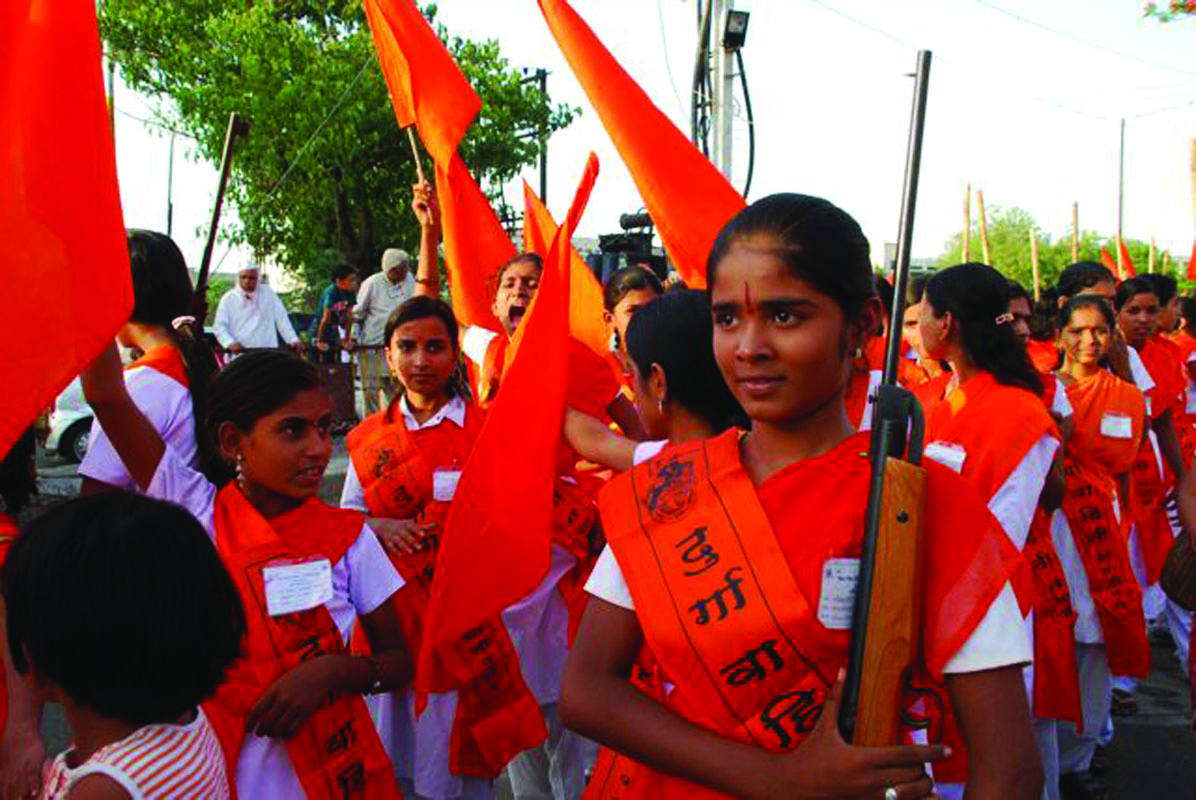Prachi, a husky 24-year old with a dull gaze, barks at a group of young Hindu girls. After two and a half hours of running, crawling, and combat drills, their colourful saris are torn and dusty. While Prachi trains girls in the skills required of a Hindu fundamentalist at the Durga Vahini camp, Ruhi—a lithe 19-year old from Jaipur—competes for the crown of Miss India, running from sultry photo sessions to skin-lightening treatments. The two young women could hardly be more different, and yet, suffer from the same handicap.
Ostensibly, Nisha Pahuja’s award-winning The World Before Her is a documentary concerned with the classic clash of East and West: the stern religious fundamentalism butting heads with the bikini-clad frivolity that Western capitalists so deviously export. Wisely, however, Pahuja avoids the obvious angle, and pans instead to its intersection with womanhood. The documentary comes at a critical moment in history when Indian women have finally begun to receive their due attention. Recently, the brazen rape and murder of a young medical student by a group of thugs—who abused her so severely that by the time she reached the hospital, she was missing 95 per cent of her intestine—garnered international attention.
With the world’s outrage directed squarely at Delhi, Pahuja brings us two different, yet wholly indissoluble stories. Ruhi wants to compete in beauty pageants because they offer a release from the bonds that living in India imposes on women, who, the film states, are treated as faceless second-class citizens. The rest of the contestants echo this sentiment; they’re uncomfortable strutting the beach, being judged solely on their legs—but if they win, they’ll earn an identity that surpasses their sex. Pahuja shows that in order to become autonomous human beings, Indian women must get their hands dirty; but while she portrays these contests as a last resort, the film fails to offer advice to the masses who are not born with model-good looks.
Prachi, the drill-sergeant whose life consists of serving Hindu fundamentalism, illustrates an even more nuanced problem. Her father, a voluminous slug who preaches the demonization of Muslims and Christians to the Durga Vahini girls, has steeped Prachi in hate. Through his slaps, punches, burns, Prachi remembers to be grateful. It’s not that she loves him, although perhaps she does; rather, she suffers from a corrupted form of parental debt. Prachi is bound to her father through a violent form of parental indenture: he did not kill her at birth. Because he went against his customs and generously allowed a female offspring to live, Prachi is thankful. And yet, while he is set on marrying her off, she refuses. She has no interests apart from proselytizing her fundamentalist beliefs. Therein lies the film’s central tension—how does an Indian woman, groomed by custom to be inferior to man, become his equal while keeping her traditional identity?
The World Before Her is framed in drab, ordinary shots, showing neither the squalor, nor the colour, of India. The interviews are unassuming, almost bland in their matter-of-factness. And yet, through it all, the film’s message resonates with fierce conviction: one’s sex shouldn’t be a sentence.
The World Before Her is playing at Cinema du Parc (3575 avenue du Parc), 8:30 p.m. Youth tickets (age 13-25) $8.50.









